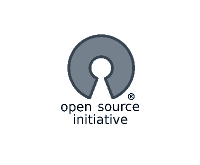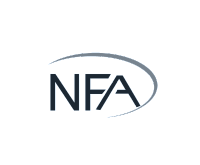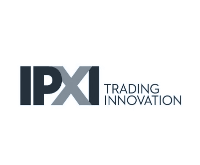Featured Content

Connamara Sponsors the Proprietary Trading Managers’ Meeting
Connamara sponsored the innovative Proprietary Trading Managers’ Meeting last week which brought together industry leaders for an engaging discussion on.
< 1 minute Read
Read More >

Mike Gatny Promoted to President and Chief Operating Officer
Connamara Systems is pleased to announce that Mike Gatny has been promoted to President and Chief Operating Officer of Connamara.
< 1 minute Read
Read More >

Connamara Unveils QuickFIX/n 1.12.0, Enhancing Developer Experience
July 24, 2024 Connamara, a leading provider of advanced technology solutions for the financial industry, is thrilled to unveil the.
2 minute read
Read More >

How Two Major Decisions Leveled Up Our Security Game: Northwestern Cybersecurity Bootcamp and Security+ Testing
At Connamara, our commitment to education and training has been unwavering since our inception in 1998. Over our 25+ years,.
3 minute read
Read More >

How Our Acceptance Tests Safeguard Complex Systems
By Kevin Siamis Capital markets operate within intricate systems comprising trading platforms, data feeds, and regulatory frameworks. Yet, modifying these.
2 minute read
Read More >

Connamara’s Global Reach
At Connamara, our mission is simple: to help businesses worldwide realize their capital markets and custom software goals. While our.
3 minute read
Read More >

How Custom Software Solutions Revolutionize Algo Trading
What is Algo Trading? Algorithmic trading uses computer algorithms to automate the trading process, from market analysis to order execution..
3 minute read
Read More >

Connamara COO Mike Gatny Appears on the Venture Unscripted Podcast
Last month, our COO, Mike Gatny, connected with Grand Rapids-based product innovations and venture studio, City Innovations, to chat with.
< 1 minute Read
Read More >

Unleashing the Power of Multilingual Programming: Empowering Polyglottal Developers
Kevin Siamis breaks down our tech stack strategy.
3 minute read
Read More >

What is Burrito Day? A Connamara Tradition
Burrito Day is a Connamara tradition dating back to 2008 that is so important to our culture that Connamarians have.
2 minute read
Read More >

2023: Connamara’s Year in Review
As we celebrate a quarter-century of Connamara’s journey, 2023 marked a year of remarkable achievements and continued growth. It was.
5 minute read
Read More >

Highlighting Connamara’s Highest Performing Social Posts of 2023
Explore the standout moments that defined Connamara’s social media landscape in 2023. From engaging stories to impactful content on LinkedIn,.
2 minute read
Read More >

.NET: Decoded
What’s the best use of .NET? Is the language outdated or just right for your legacy system? At Connamara, we’re.
< 1 minute Read
Read More >

The Connamara 2023 Gift Guide
This holiday season at Connamara, we wanted to share some of our favorite products we’ve tried this year with our.
4 minute read
Read More >

C++: Decoded
What’s the best use of C++? Is the language outdated or just right for your legacy system? At Connamara, we’re.
< 1 minute Read
Read More >

C: Decoded
What’s the best use of C? Is the language outdated or just right for my legacy system? At Connamara, we’re.
< 1 minute Read
Read More >

Cheers to 25 Years: 4 Signature Connamara Cocktails
As we raise our glasses to 25 years of innovation, growth, and success, we’re excited to toast this milestone and.
3 minute read
Read More >

Connamara Announces QuickFIX/Go v0.9.0 Now With Support for Golang v1.21, Weekday Configurations, and MessageStore Enhancements
November 15, 2023 Connamara, a leading provider of advanced technology solutions for the financial industry, is excited to unveil the.
2 minute read
Read More >

Connamara FAQ: Your Top Questions, Answered
In our 25 years in business, we’ve answered every question potential clients can come up with. But we’ve never taken.
3 minute read
Read More >

Rust: Decoded
Connamara prides itself on having a stable of polyglottal programmers ready to tackle your next custom software project. But, our.
< 1 minute Read
Read More >

CEO Jim Downs on John Lothian News (JLN)
This October, the FIA EXPO 2023, in which Connamara hosted the Innovators Pavilion, our CEO, Jim Downs, was interviewed by.
2 minute read
Read More >

Is Your Team Agile, Or Are You “Doing Agile”? You Should Worry If Management Doesn’t Know the Difference
“Agile” has become a buzzword—an adjective over a mindset. In the 2020s, every company wants to say they’re Agile or.
7 minute read
Read More >

Golang: Decoded
Our engineering team often gets asked which programming languages are right for certain projects. While we have a diverse tech.
< 1 minute Read
Read More >

Connamara’s Q3 Triumphs: A Season of Growth and Innovation
As Connamara heads toward the end of 2023, we’d like to take a moment to look back and share the.
3 minute read
Read More >

Connamara Announces QuickFIX/n 1.11.0 Now with Enhanced Sequence Number Support and Conversion Between the FIX Trading Community’s JSON Encoding for FIX Protocol
October 12, 2023 Connamara, a leading provider of advanced technology solutions for the financial industry, is thrilled to unveil the.
2 minute read
Read More >

Connamarians Celebrate International Podcast Day with Our Top 15 Picks
In honor of International Podcast Day, Connamarians wanted to share our recommendations for our favorite audios. From inspiring interviewers and.
4 minute read
Read More >

They Call it “Feature Creep.” We Call it Creative Collaboration. Don’t Let Work-Shy Developers Hinder Your Custom Software Solutions
Don’t be afraid to change your mind. Changing one’s mind is a part of human nature. In software development, shifting.
4 minute read
Read More >

Quan2m Podcast: Coding the Finance of Today with Jim Downs
Jim Downs interview with Allison Mahmood, Quan2m Podcast
< 1 minute Read
Read More >

Embracing the Remote Revolution: Our Journey as a Remote-First Company
Labor Day Special: Celebrating a Work Culture That Knows No Boundaries As we gather around the virtual breakroom on this.
4 minute read
Read More >

Video: Careers at Connamara
Are you ready to join the team that's revolutionizing the way the world trades? Connamara is looking for talented individuals like.
< 1 minute Read
Read More >

Books That Shaped Connamara
In honor of National Book Lover’s Day (August 9), we asked our leadership team what books made the most impact.
3 minute read
Read More >

CEO Insights: When to Buy and When to Build Software for Your Business
Buy it or build it? It’s the first decision enterprises must make when bringing in new software solutions. As a.
4 minute read
Read More >

25 Business Lessons from 25 Years in Business
We reached out to our team members for timeless lessons learned in 25 years in business.
3 minute read
Read More >

Maureen Downs Wins Lifetime Achievement Award at Women in Technology and Data Awards 2025
VIA PR Newswire LONDON – Connamara Technologies, a leading provider of exchange technology, announced that co-founder and chair Maureen C..
2 minute read
Read More >

Connamara Updates QuickFIX/n 1.13.0, Now Supporting .NET 8
Connamara, a leading provider of advanced technology and software solutions for capital markets, is thrilled to unveil the latest version.
2 minute read
Read More >















